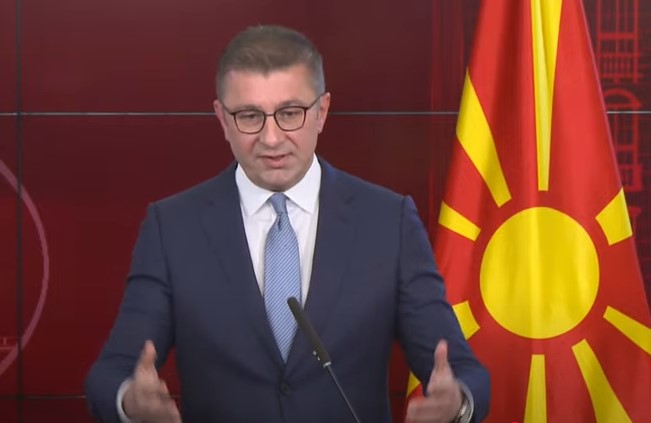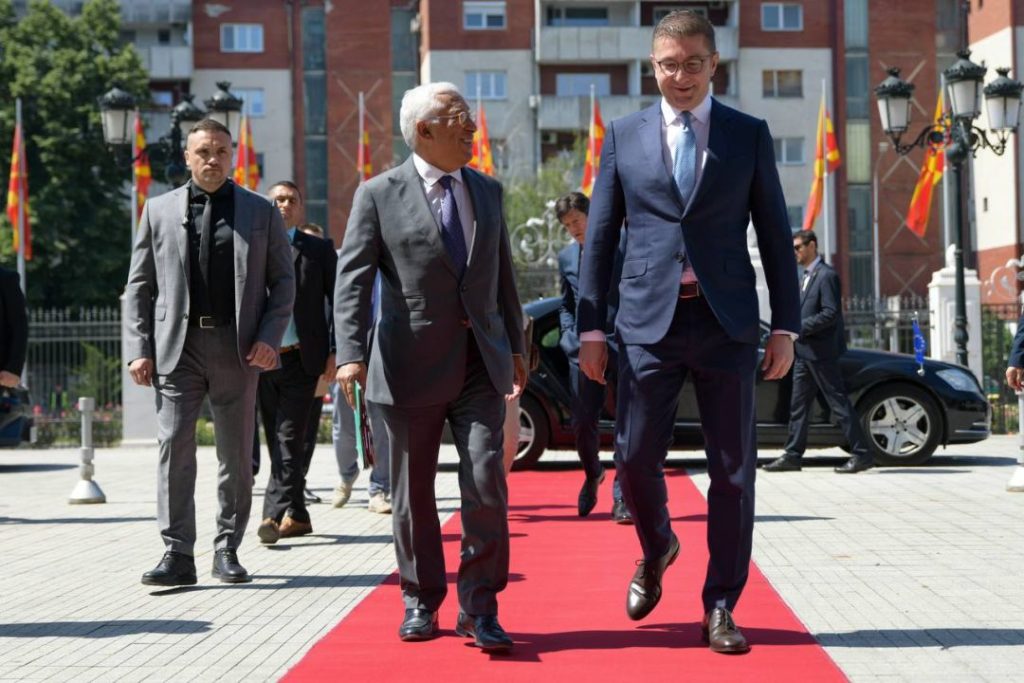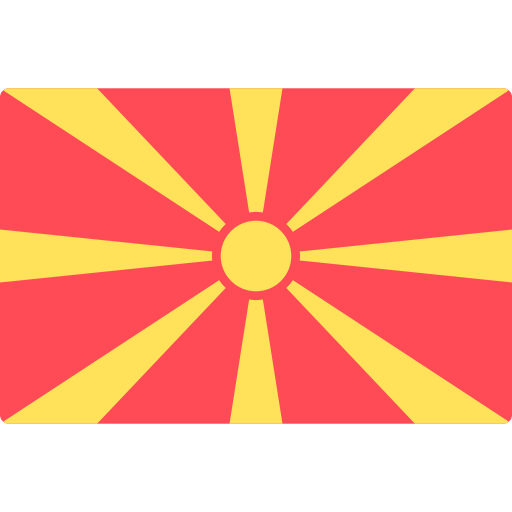
Prime Minister Hristijan Mickoski welcomed the President of the European Council Antonio Costa today, for a long meeting that was dominated by the dispute with Bulgaria. Costa recently visited Sofia, and urged Macedonia to implement the conditions that were accepted by the Zaev regime, even though he said that he understands it’s difficult to do. Prime Minister Mickoski responded that Macedonia can’t make another round of concessions without guarantees for the outcome.
We can’t change the Constitution, we don’t even know what time in a row, without a clear delivery, a clear message from the Bulgarian side. Nobody objects to adding the Croats, Montenegrins.. in the Preamble of the Constitution. We have a principled relationship with those countries. Not even the Portuguese, the Spanish or the French. We have no such problem. But it has to be a two-way street. If one party keeps delivering and the other does nothing, then there is no point. We have changed our flag, name, Constitution.. Nobody does that. The road is difficult and frustrating for us and we are still where we were 20 years ago. There is zero delivery from the other side. I would be naive as other politicians who were naive in the past to think that we should do this without delivery from the other side. I will never do that, Mickoski said.

The Prime Minister pointed to the numerous international verdicts that Bulgaria should begin upholding the minority rights of ethnic Macedonians, that remain ignored, even as it demands that Macedonia must change its Constitution in favor of the Bulgarian minority.
The President of the European Council said that it is time for Macedonia to deliver results. He assured Macedonia that the agreement reached by the Zaev regime will not be renegotiated. The visit comes after clear statements from the Bulgarian Foreign Minister Georgiev that the changing of the Constitution is only the first request that country has from Macedonia.
Following the meeting in Skopje, Mickoski and Costa flew together to Tirana, for the summit of the European Political Community that includes the EU member states and the candidate countries.


 English
English